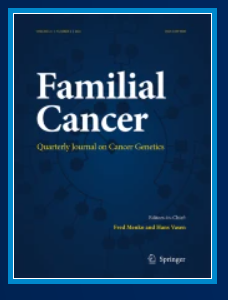Remote vs in-person BRCA1/2 non-carriers test disclosure: patients’ choice during Covid-19 pandemic restriction

https://link.springer.com/article/10.1007/s10689-022-00307-y
During Covid-19 pandemic most hospitals have restricted in-person delivery of non-essential healthcare services, including genetic testing delivery, to slow the spread of the virus. Our Onco-Genetic Service also faced this challenging period and had to re-organize its clinical practice with the use of tele-health. Aim of the present paper is to understand whether and how Covid-19-related changes in medical practice influenced patients’ satisfaction about the health service provided. 125 BRCA1/2 non carriers (109/125, 87.2% female and 16/125, 12.8% male) in Istituto Tumori “Giovanni Paolo II” of Bari were enrolled. All participants were asked to choose whether they prefer in-person or remote post-test counselling session. Basing on patients’ choice, two groups of subjects were composed. One week after the post-test counselling session, participants were phone called and asked to complete: a socio-demographic form, a brief structured interview about their Covid-19 related worries and their satisfaction with the health service provided, Hospital Anxiety and Depression Scale and Fear of Covid-19 scale. Qualitative information about patients’ choice were also collected. No significant difference about patients’ satisfaction with the health service provided emerged between groups. Patients who preferred remote post-test counselling had higher anxiety, worries and fear-of Covid-19 than the others. All remote-counselling subjects preferred tele-genetics because of Covid-19 security, would choose it again and would recommend it to others. Cancer tele-genetics offers good guarantees of comfort and efficacy, but patients’ choices are related to personal and psychological variables. The use of tele-genetics has to be a patient’s choice.


